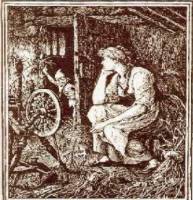
This professional development session focuses on the components of authentic learning. Participants will connect the components of authentic learning to a Rumpelstiltskin lesson. Read more »
Target Audience
Calendar Placement
Group Size
Intention Or Purpose
Related

This professional development focuses on defining and promoting literacy strategies across all subject areas. Participants will examine how literacy components are necessary for their subject areas, identify the specific literacy strategies appropriate for their content, and discuss ways to implement... Read more »
Intention Or Purpose

In this lesson, students will observe the colors in emission spectra for different excited gases. They will compare the specific emitted wavelengths and explain how these specific emitted wavelengths are the result of energetic and physical transitions by electrons in excited atoms. Then, they will... Read more »
Light Emission Energetics and Spectra
Sponsor
Grade Level
Subject
Course
Standards

In this lesson, students use an online fossil database to explore changes in life forms throughout the history of life on Earth. Students also make predictions about environmental changes and how those changes affect organisms living in different environments. Students then analyze anatomical similarities... Read more »
Evidence of Common Ancestry and Diversity
Subject
Grade Level
Standards

This lesson gives students a sneak peek inside how a sports statistician interprets team and player statistics. Students will analyze basketball player data from the OKC Thunder's 2021–22 season related to measures of central tendency. By the end of the lesson, students will be able to calculate measures... Read more »
Measures of Central Tendency
Related
Grade Level
Course
Subject
Standards

Students reflect on their plans after high school and explore various post-secondary education (PSE) options through a virtual campus scavenger hunt. Working in groups, they research assigned campuses, create presentations as “admissions recruiters,” and share their findings with the class. Finally,... Read more »
Target Audience
Calendar Placement
Intention Or Purpose
ICAP (Individual Career Academic Planning)
College & Career Readiness Framework
Related

